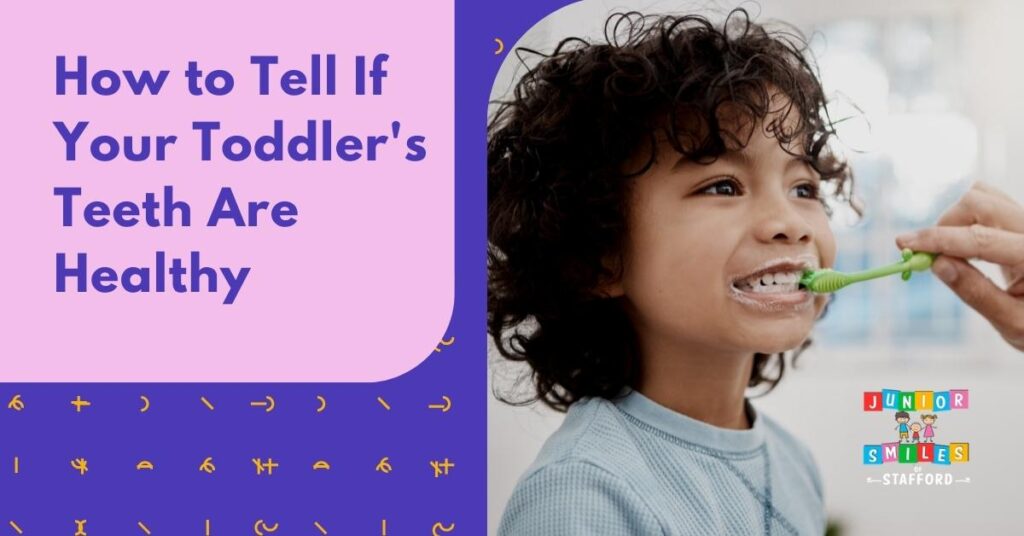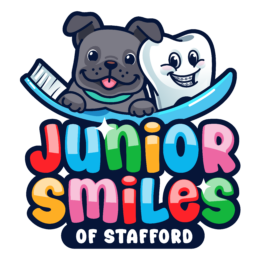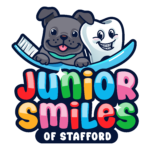How to Tell If Your Toddler’s Teeth Are Healthy

As parents, we are the first line of defense in ensuring the health and well-being of our little ones, and this includes their dental health. But how can you tell if your toddler’s teeth are healthy?
In this comprehensive guide, we will explore the key indicators of good dental health in toddlers. From understanding the importance of strong, properly aligned teeth to recognizing the signs of potential dental issues, we’ll provide you with valuable insights and practical tips.
Whether you’re a first-time parent or a seasoned pro, this article will equip you with the knowledge you need to ensure your toddler’s smile is as healthy as it is heartwarming.
Signs of Healthy Toddler Teeth
As a parent, it’s essential to ensure that your toddler’s teeth are healthy and well-maintained. Healthy baby teeth are crucial for proper chewing, speech development, and the eventual eruption of adult teeth. Here are some signs to look for to determine if your toddler’s teeth are healthy:
Bright and White
Healthy baby teeth should appear bright and white. Discoloration or yellowing of the teeth may indicate poor oral hygiene or potential tooth decay.
Smooth and Intact
Healthy toddler teeth should be smooth and intact, without any signs of chipping or breakage. Any damage to the teeth can lead to further complications if left untreated.
No Discoloration or Spots
Healthy baby teeth should not have any discoloration or spots. These can be signs of tooth decay or other dental issues that need to be addressed by a pediatric dentist.
Signs of Unhealthy Toddler Teeth
It’s important to be aware of the signs of unhealthy toddler teeth so that prompt action can be taken to address any issues that may arise.
Discoloration or Spots
Discoloration or spots on the teeth can be indicative of tooth decay, which, if left untreated, can lead to cavities and other dental problems.
Chipped or Broken
Chipped or broken teeth can not only be painful for your toddler but can also lead to further damage if not repaired by a dental professional.
Tooth Decay or Cavities
Tooth decay or cavities are common issues in toddler teeth and can lead to discomfort and pain if not treated promptly.
Preventing Unhealthy Toddler Teeth
Preventing unhealthy toddler teeth is crucial for their overall health and well-being. Here are some essential steps to take to maintain your child’s dental health:
Proper Oral Hygiene
Teach your toddler the importance of proper oral hygiene, including brushing their teeth at least twice a day and flossing regularly. Supervise their brushing to ensure they are doing it effectively.
Healthy Diet and Nutrition
A balanced diet plays a significant role in maintaining healthy teeth. Limit sugary snacks and drinks, as they can contribute to tooth decay. Encourage the consumption of fruits, vegetables, and dairy products.
Regular Dental Checkups
Regular visits to a pediatric dentist are essential for monitoring your child’s dental health and addressing any issues early on. The American Academy of Pediatric Dentistry (AAPD) recommends that children should have their first dental visit by their first birthday.
Remedies for Unhealthy Toddler Teeth
If your toddler is experiencing dental issues, there are several remedies that can help address the problem:
Dental Treatments for Cavities
If your toddler has cavities, dental treatments such as fillings or crowns may be necessary to restore the health of the affected teeth. It’s important to address cavities in toddlers promptly to prevent further damage to their teeth and ensure proper oral health.
In addition to dental treatments, it’s crucial to establish good oral hygiene habits at home, such as regular brushing and flossing, to prevent future cavities. It’s also recommended to limit sugary snacks and drinks, as these can contribute to tooth decay. Regular dental check-ups are essential for monitoring your toddler’s oral health and addressing any potential issues early on.
Repairing Chipped or Broken Teeth
Dental professionals can repair chipped or broken teeth to prevent further damage and restore the tooth’s functionality. In some cases, a dental sealant may be recommended to protect your toddler’s teeth from decay. This thin, plastic coating is applied to the chewing surfaces of the back teeth, where cavities commonly form.
Additionally, if your toddler is experiencing persistent dental issues, it’s important to consult with a pediatric dentist to determine the best course of action for their oral health. Remember, early intervention and proper dental care can help maintain the health of your toddler’s teeth and set the foundation for good oral hygiene habits in the future.
Professional Teeth Cleaning
Regular professional teeth cleanings can help remove plaque and tartar buildup, reducing the risk of tooth decay and gum disease. It is recommended to have a professional teeth cleaning at least twice a year to maintain good oral health.
During the cleaning, the dentist or dental hygienist will also be able to identify any potential issues early on, allowing for prompt treatment and prevention of more serious problems. In addition to the health benefits, regular cleanings can also help keep your teeth looking their best, as they remove surface stains and leave your teeth feeling smooth and clean.
Additional Tips for Healthy Toddler Teeth
In addition to the above measures, here are some extra tips to ensure your toddler’s teeth remain healthy:
Use Fluoride Toothpaste
Using fluoride toothpaste can help strengthen the enamel and prevent tooth decay. However, it’s essential to use a pea-sized amount for toddlers to minimize the risk of swallowing too much fluoride. It’s also important to supervise young children while they brush their teeth to ensure they are using the appropriate amount of toothpaste and not swallowing it.
Additionally, parents should encourage their children to spit out the toothpaste rather than swallowing it. For children under the age of 3, it’s recommended to use a smear of fluoride toothpaste, about the size of a grain of rice, on their toothbrush. This helps to protect their teeth while minimizing the risk of fluoride ingestion.
Limit Sugary Snacks and Drinks
Limiting the consumption of sugary snacks and drinks can significantly reduce the risk of tooth decay and cavities. It is important to be mindful of the frequency and timing of consuming sugary foods and drinks, as frequent exposure to sugar can increase the risk of tooth decay.
In addition to the frequency of consumption, the form of sugar also plays a role in oral health. Sugary foods that are sticky or stay in the mouth for a longer period, such as hard candies or sugary drinks, can increase the risk of tooth decay. It is recommended to limit the consumption of these types of sugary foods and drinks and to brush or rinse the mouth with water after consuming them to help reduce the risk of tooth decay.
Encourage Regular Brushing and Flossing
Encourage your toddler to brush their teeth regularly and assist them with flossing to ensure thorough cleaning. It’s important to use a small, soft-bristled toothbrush and a pea-sized amount of fluoride toothpaste for toddlers. Encourage your child to brush for two minutes, making sure to reach all the surfaces of their teeth. As for flossing, demonstrate the proper technique and assist your toddler until they are able to do it on their own. By establishing good oral hygiene habits early on, you can help prevent tooth decay and promote a lifetime of healthy smiles.
By following these tips and being proactive about your toddler’s dental health, you can help ensure that their teeth remain healthy and strong as they grow. Remember, early intervention and preventive measures are key to maintaining a healthy smile for your child.
Contact Junior Smiles of Stafford to keep your toddler’s teeth healthy
If you want to ensure that your toddler’s teeth stay healthy and cavity-free, be sure to schedule regular checkups with a reputable pediatric dentist like Junior Smiles of Stafford. We offer comprehensive dental care for toddlers and children, starting with preventative services like dental sealants and fluoride treatments and moving on to more complex procedures like root canals and braces. Contact us today to schedule an appointment!

